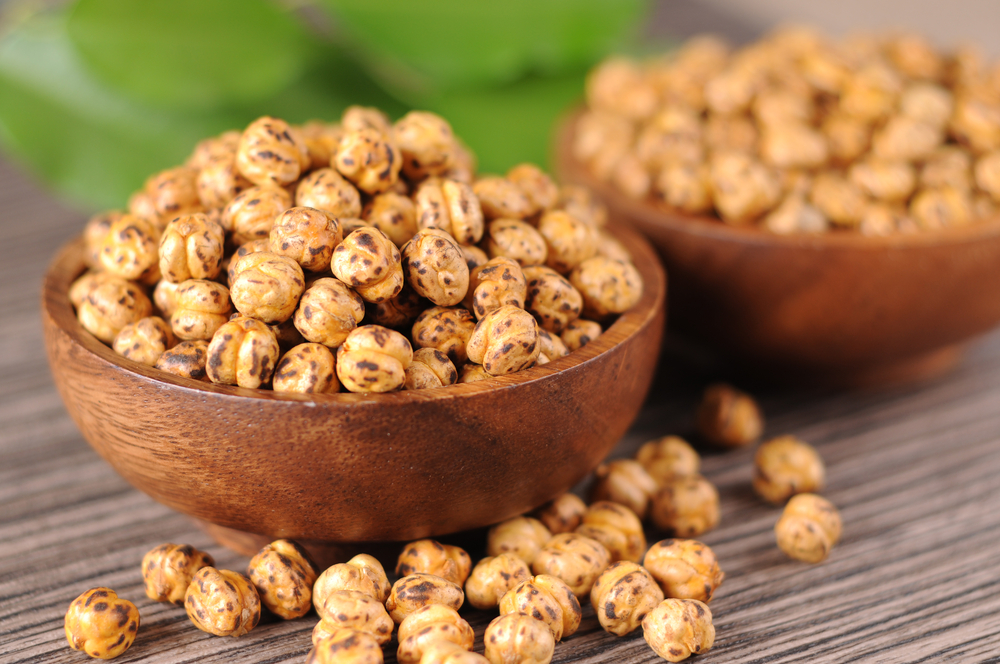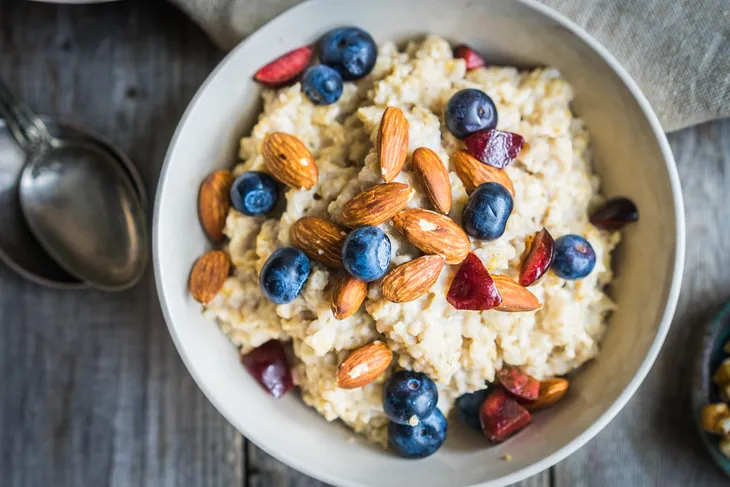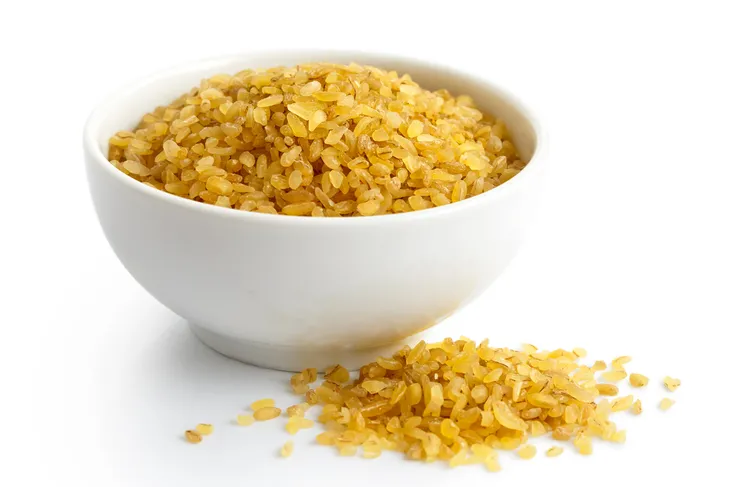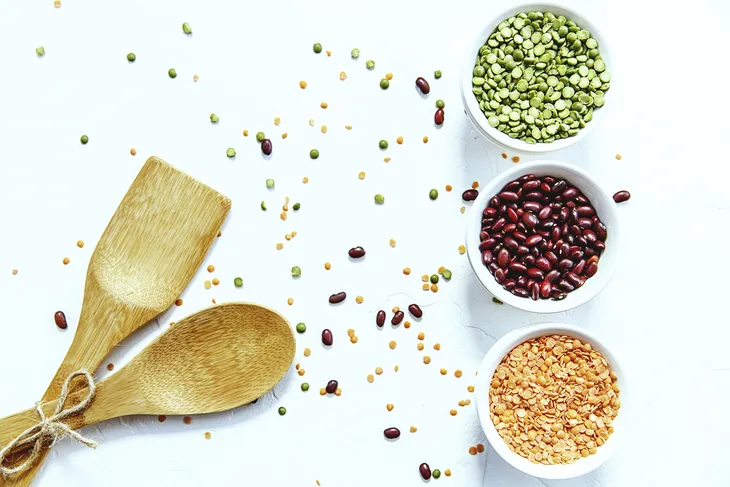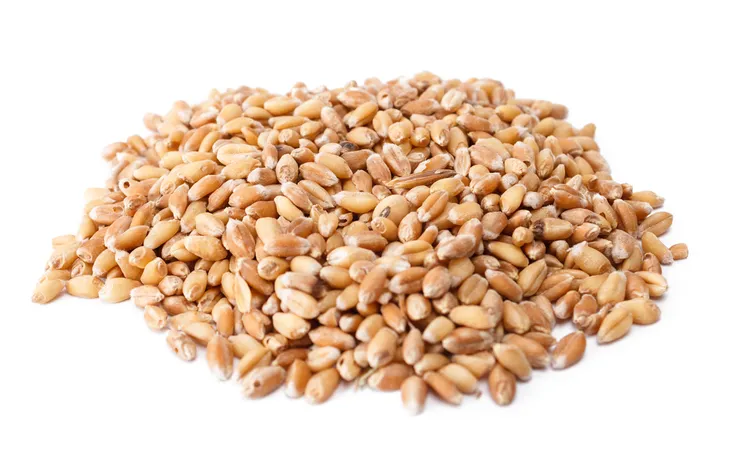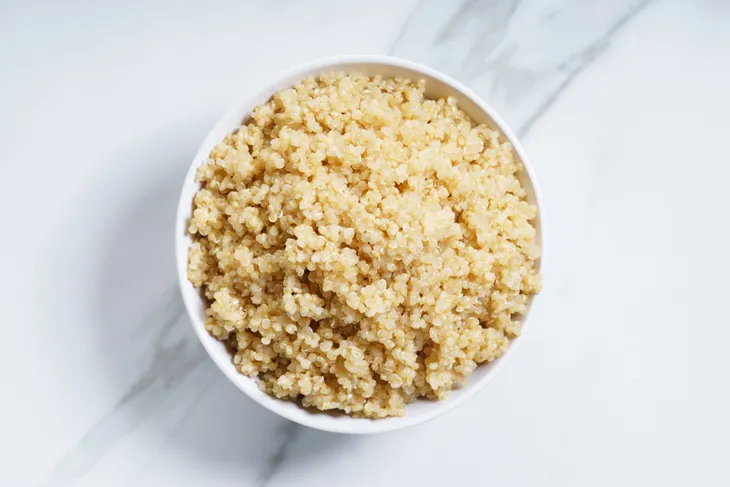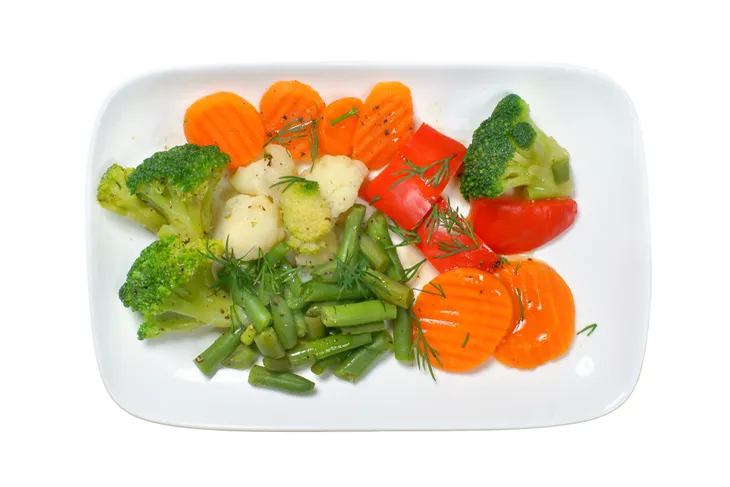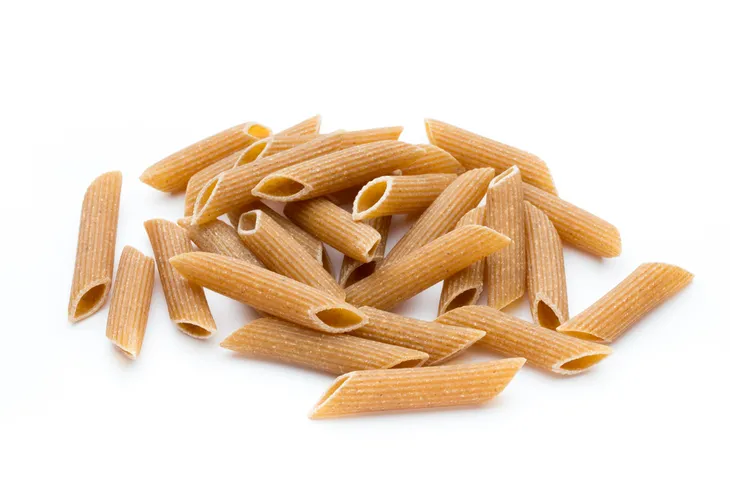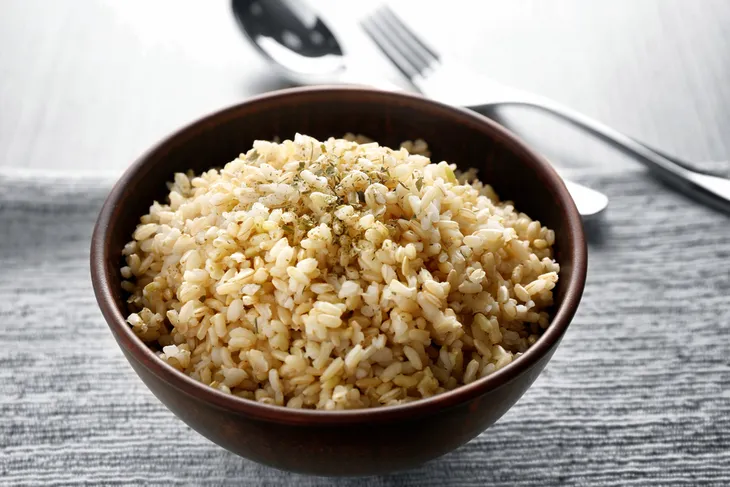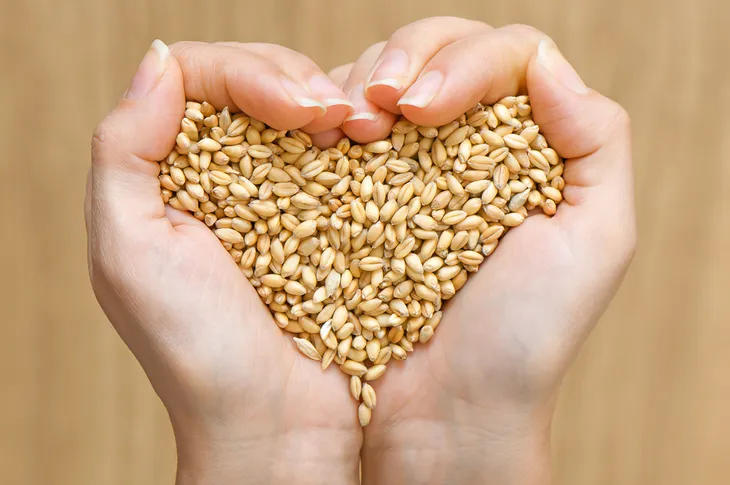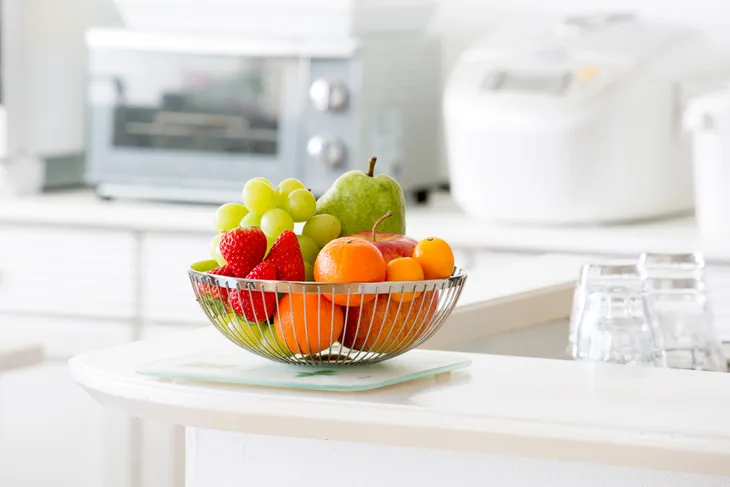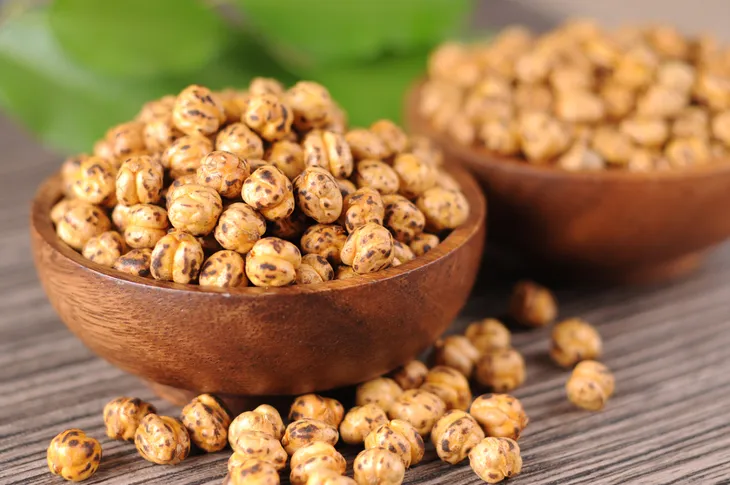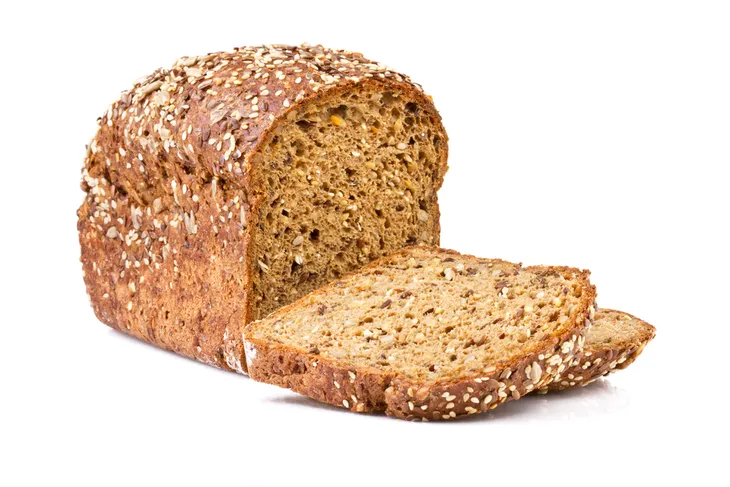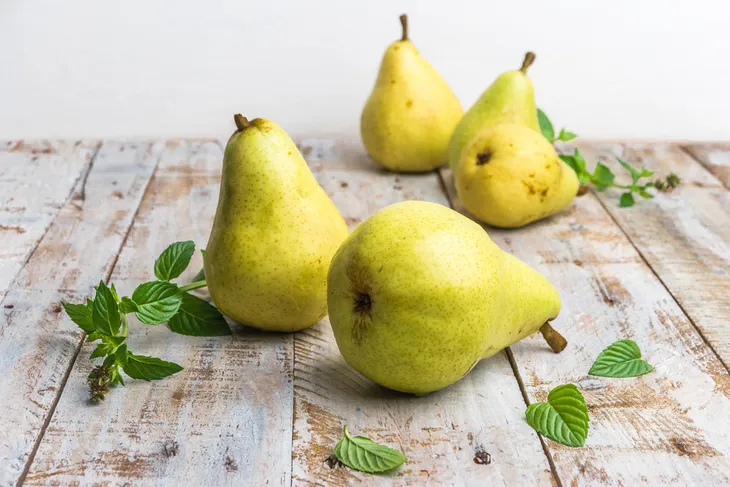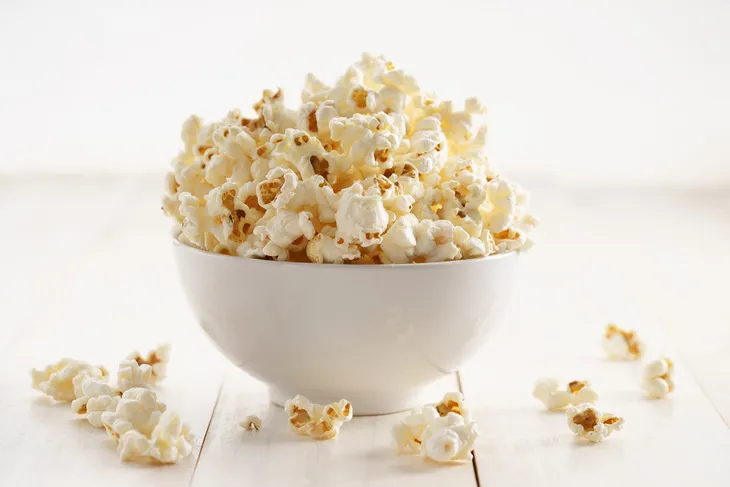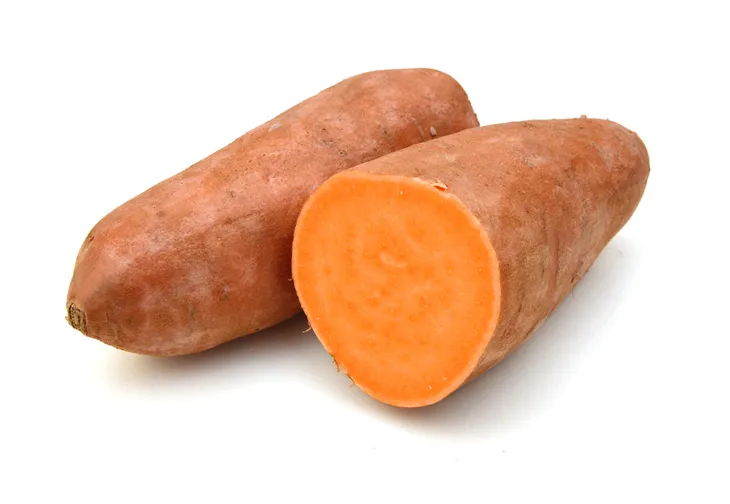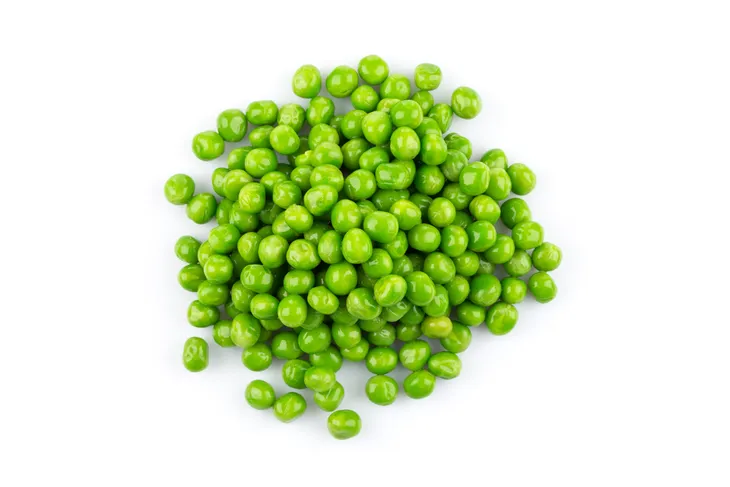When most people decide to go on a diet, their first move is to eliminate carbohydrates. While white bread, pasta, and baked goods with white refined flour might sabotage your weight loss efforts; not all carbs should be painted with the same red brush because carbohydrates don’t make you fat.
In fact, if you cut carbs completely out of your diet, sure you’d be eliminating many starchy foods, but you’d also be eliminating fruits, vegetables, and whole grains which would result in some serious food cravings that would send you on a supersized binge at the nearest drive-thru burger joint—STAT!
Carbohydrates are essential for energy and brain function, and if you consume the following 16 nutrient-dense, fiber-rich carbs, you’ll stay fuelled, lose weight, and remain full all day long…
Want diet & nutrition content delivered straight to your inbox? Sign up for our exclusive diet & nutrition newsletter!
Oatmeal
Oatmeal is typically thought of as being a warm comfort food, but it’s actually high in soluble fiber which means that it dissolves slowly after eating. This helps keep you sustained for much longer than, say, crispy rice cereal. Registered dietician Shira Lenchewski told Redbook magazine readers to avoid instant oatmeal, “Oats’ complex carbs are super filling, so you’re less likely to overindulge after you eat them. Just steer clear of instant oatmeal with added sweeteners.” Plus, food studies link oatmeal to blasting visceral fat, which is the hard to combat fat that sits around your mid-section and your vital organs (i.e., your heart).
Bulgur Wheat
Bulgur wheat, or more precisely, cracked wheat, is a tad time-consuming to prepare—it needs to be soaked in hot water before boiling. However, the effort to make up a batch for a week of dinners will seem minuscule when you consider that this fiber-rich grain packs 5-grams of slow-burning fiber in just a half cup!
Beans
Beans, beans the magical fruit (no, they are not actually a fruit) — are good for your heart! And yes, the more you eat; the more regular your digestive system will function which aids greatly in weight loss. Plus, in addition to being high in fiber, beans also pack valuable amounts of protein and iron to fuel your workouts.
According to a study focusing on abdominal fat, any food that is rich in soluble fiber will help reduce that fatty tissue around our abdomen. This is good because that tissue is responsible for increasing our risk for heart disease, some cancers, and of course, threatens our waistline.
Wheat Berries
Wheat berries are getting a lot more attention lately. Once relegated to vegetarians and health food aficionados, these mini kernels of whole wheat pack plenty of fiber, iron, magnesium, zinc, and B vitamins which help the transfer food into energy and boost metabolic rate (calorie to fuel production).
Quinoa
Quinoa isn’t considered a “super food” without merit. Quinoa is a super protein, meaning it contains the essential amino acids needed to build lean muscle and rev up your metabolic rate (the speed at which you burn calories). So in addition to eating a grain that’s packed with protein, quinoa doesn’t contain the harmful fat that meat does. In addition to protein, it’s also packed with fiber!
Vegetables
You probably didn’t think vegetables were in the carbohydrate category when you ousted them from your diet plans. However, these colorful carbohydrates contain the essential fiber, vitamins, minerals, and antioxidants needed to fight free radical damage—so weight gain, cancer fighters, and many other harmful diseases.
Whole-Grain Pasta
Just because you’re on a diet, it doesn’t mean you can’t enjoy pasta ever again! Just swap that starchy white linguine for a hearty whole-grain pasta dish for dinner—it’ll be packed with fiber so you don’t have to eat as much to get full, and you’ll even stay that way for hours following your meal. Research has shown that whole-wheat pasta can lower body mass index, but only when it’s linked with a healthy diet like the Mediterranean diet “stocked with plant-based foods and healthy fats.”
Brown Rice
If you want to feel full longer and burn fat at the same time, opt for brown rice instead of white rice the next time you make a stir-fry or order sushi. Why? Unrefined brown rice is jam-packed with slow-burning fiber, as well as many essential vitamins and minerals that are absent in its white counterpart. White rice is stripped of pretty much all nutritional value whereas brown rice contains fiber, magnesium, and vitamin B-6.
Barley
Do you suffer from a mid-afternoon snack attack? What do you reach for—a cookie or a nice barley salad? Well, studies show that if you opt for a complex carbohydrate, like barley, you’ll not only satisfy your hunger cravings; you’ll also prevent future blood sugar spikes that cause you to binge eat and crave sugar, starch, and trans fats.
Redbook magazine points out that barley is one of the oldest superfoods. It has been proven through research that eating fiber-rich foods like barley “can stimulate hormones in the gut that help regulate appetite and metabolism,” which is basically just a fancy way of saying it’ll keep you fuller for longer.
Fruits
Like veggies, fruits are often overlooked in the carbohydrate category. However, these naturally sweet, healthy carbs are rich in fiber, as well as a plethora of vitamins, minerals and antioxidants. So basically they’re healthy AND they satisfy those sugar cravings — just without the empty calories. They’re the perfect solution.
Chickpeas
Chickpeas are a great ingredient in the kitchen because they are so versatile. They can be added to almost any meal like a salad, chili, dip, soup, or even roasted as a crispy snack! In addition to their versatility, chickpeas help satisfy hunger for longer. Redbook magazine quotes a Canadian study that found “eating pulses — a family of legumes that includes chickpeas, beans, peas, and lentils — can prevent overeating and help keep your weight in check.”
Need advice on how to incorporate them into your diet? Registered dietitian Shira Lenchewski tells Redbook to try roasting them into a crunchy, spicy snack that you don’t have to feel guilty about. Toss some cooked chickpeas in 3-tablespoons of olive oil and any favorite combination of spices. Then spread them out on a cookie sheet and roast them in the oven at 375 degrees fahrenheit for 40 minutes.
Whole-Grain Bread
It’s been drilled into our heads that bread is bad for us, just like we’ve been taught carbs are bad! While it’s true that white bread is definitely not a healthy choice, whole-grains like whole wheat bread are good for us if eaten in moderation. Shape magazine advises shoppers to still be careful when reaching for whole wheat bread in the grocery store. Read the labels to find out which brand is the healthiest because some packages might only be 51-percent whole grains. You want to buy one that is 100 percent whole grain with only about 80 to 90-calories, less than one gram of sugar per slice, and at least two grams of fiber.
A Penn State study found in just 12 weeks, people can lose belly fat while eating whole grains on a low-calorie diet. If losing weight isn’t a good enough reason to include whole-grain bread in your diet, Harvard Researchers also found that it can add years to your life by preventing heart disease.
Pear
While we already mentioned that most fruits are a great source of carbohydrates, pears in particular are among the best. Redbook magazine points out that this sweet and tangy fruit is packed with fiber, way more than any other fruit! In fact, they contain six grams more than most other fruits, including apples. They’ve also been proven to help with weight loss. A study in Annals of Internal Medicine discovered that adults can lose weight without making any drastic changes to their diet — all they have to do is consume at least 30 grams of fiber a day.
Popcorn
This popular movie night snack not only tastes delicious, but can help us lose weight! You might be wondering how a salty snack could possibly help in that battle. A study published in the Nutrition Journal explains that popcorn “not only provides more short-term satiety compared to the fried taters, but also reduces feelings of hunger for those looking to manage body weight and watch their calories,” writes Shape magazine.
Now, we’re not telling you it’s okay to start chowing down on an unlimited supply of popcorn, or even recommend indulging in that heavy, buttery movie theatre popcorn. Instead try making your own air-popped popcorn on the stove.
Sweet Potatoes
I never thought we’d hear the words potato and weight loss together, but when it comes to sweet potatoes, it’s true! Although this root vegetable contains 27-grams of carbs, Redbook magazine points out that it’s also been shown to “increase levels of the hormone adiponectin, which helps regulate blood sugar, so your metabolism works more efficiently.” To top it all off, sweet potatoes are fat-free and a much healthier option to the regular potato because they contain less sodium and fewer calories, but carry the same great taste!
Green Peas
Eat your peas! According to Shape magazine, we are able to get 12-percent of our recommended daily serving of zinc and four grams of fiber and protein by eating just half a cup of green peas. Although peas are more known for helping in the fight against colds, Shape and Redbook magazine point out that this legume also reduces hunger, and therefore encourages weight loss. How does this happen? Peas are packed with leptin, “a hormone that alerts your brain when your stomach has had enough,” says Shape. Sounds easy enough!
